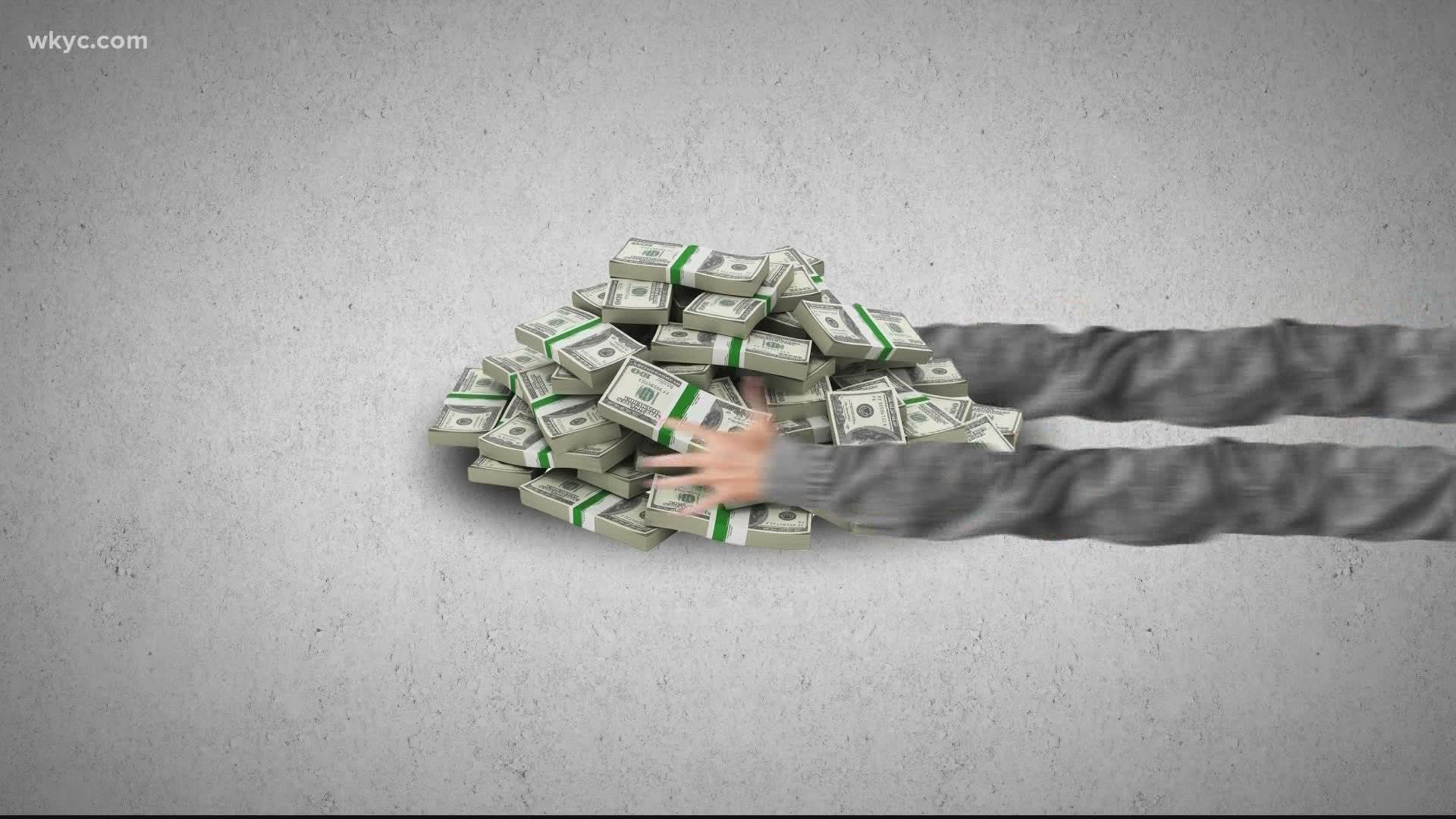CLEVELAND — Billions of dollars earmarked to help small businesses and workers survive the COVID-19 pandemic lockdowns were lost to fraud almost as soon as the government programs were first announced in 2020.
Exactly how many billions lost isn't known, a fact that critics say illustrates the persistent disfunction spewing in Washington.
"A normal business wouldn't operate like this," Tom Schatz, president of Citizens Against Government Waste, told 3News Investigates. "The systems to prevent money from being wasted are simply not there in federal government."
The extent of COVID relief funds lost to fraud is enough to warrant comments from President Joe Biden during his State of the Union address earlier this month. Biden announced the appointment of a nationwide task force designed to identify and prosecute offenders.
"We're going to go after the criminals that stole billions of relief money meant for small businesses and millions of Americans," he told Congress.
Since the pandemic began, Congress has released more than $4.4 trillion in relief to local governments, businesses, and families. But critics say lawmakers, in their haste to quickly distribute the money to hurting taxpayers, failed to put up barriers to thwart abuses.
"Taxpayers should be very, very concerned, because ultimately we foot the bill for all of this," Shruti Shah of Coalition for Integrity, a Washington-based watchdog group, said.
In Northern Ohio, federal prosecutors have indicted at least 31 individuals on COVID relief fraud cases involving Paycheck Protection Program (PPP) loans and federal unemployment benefits. A review of those indictments reveal over $10 million was lost to such schemes.
"Here at the DOJ, we have been dealing with this COVID fraud since the inception of the pandemic and trying to combat fraud when we see it," acting U.S. Attorney Michelle Baeppler stated. "The money is there ... the money is available, and people have taken advantage of that. ... We’re seeing people spend money on cars, luxury items ... just extravagant living, for lack of a bad word."
One case of extravagance involves an indictment against six people from the Lucas County area accused of obtaining upwards of $3.3 million in loans and benefits through multiple applications for CARES Act funding in 2020. Prosecutors say Terrence L. Pounds Sr. was the ringleader, using charity as a mask for theft.
To obtain loans, Pounds — who has an extensive criminal record for drug trafficking and other offenses — allegedly claimed his Truth Ministries Global charity performed charity work.
"We feed the less fortunate and underprivileged," he wrote in one loan application.
Instead of feeding the poor, prosecutors say Pounds purchased a BMW sportscar, three brand-new SUVs, jewelry, and items at Louis Vuitton. The 45-year-old has pleaded not guilty and referred questions to his attorney, Bradley Iams of Canton. Iams told us federal court regulation prevents him from comment on the pending case.
The fraud cases run the gamut, from fake charities to fake businesses to identity theft. In another Northern Ohio case, two California men are accused of receiving more than $7 million in relief loans by creating phony businesses with Ohio addresses.
Schatz questions whether taxpayers will ever know how much of their money went to fraudsters gaming the system. Coupled with inflation and the impact of the pandemic, he says citizens should be demanding change.
"I think people are outraged," he said. "They're outraged at high costs and, I think, understand it's the result of all this spending.
"They're watching high inflation, they see high gas prices, and they should be really upset by how much money has been wasted in COVID relief funding."

